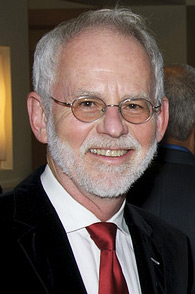Progressive education, or educational progressivism, is a pedagogical movement that began in the late 19th century and has persisted in various forms to the present. In Europe, progressive education took the form of the New Education Movement. The term progressive was engaged to distinguish this education from the traditional curricula of the 19th century, which was rooted in classical preparation for the early-industrial university and strongly differentiated by social class. By contrast, progressive education finds its roots in modern, post-industrial experience. Most progressive education programs have these qualities in common:

Brandeis University is a private research university in Waltham, Massachusetts. Founded in 1948 as a non-sectarian, coeducational institution sponsored by the Jewish community, Brandeis was established on the site of the former Middlesex University. The university is named after Louis Brandeis, the first Jewish Justice of the U.S. Supreme Court.
Science education is the teaching and learning of science to school children, college students, or adults within the general public. The field of science education includes work in science content, science process, some social science, and some teaching pedagogy. The standards for science education provide expectations for the development of understanding for students through the entire course of their K-12 education and beyond. The traditional subjects included in the standards are physical, life, earth, space, and human sciences.
Humanistic education is an approach to education based on the work of humanistic psychologists, most notably Abraham Maslow and Carl Rogers. Rogers is regarded as the founder of humanistic psychology and devoted much of his efforts toward applying the results of his psychological research to person-centered teaching where empathy, caring about students, and genuineness on the part of the learning facilitator were found to be the key traits of the most effective teachers. He edited a series of books dealing with humanistic education in his "Studies of the Person Series," which included his book, Freedom to Learn and Learning to Feel - Feeling to Learn - Humanistic Education for the Whole Man, by Harold C. Lyon, Jr. In the 1970s the term "humanistic education" became less popular after conservative groups equated it with "Secular Humanism" and attacked the writings of Harold Lyon as being anti-Christian. That began a successful effort by Aspy, Lyon, Rogers, and others to re-label it "person-centered teaching", replacing the term "humanistic education." In a more general sense the term includes the work of other humanistic pedagogues, such as Rudolf Steiner, and Maria Montessori. All of these approaches seek to engage the "whole person": the intellect, feeling life, social capacities, and artistic and practical skills are all important focuses for growth and development. Important objectives include developing children's self-esteem, their ability to set and achieve appropriate goals, and their development toward full autonomy.
The Graduate School and University Center of the City University of New York is a public research institution and postgraduate university in New York City. Serving as the principal doctorate-granting institution of the City University of New York (CUNY) system, The CUNY Graduate Center is classified among "R1: Doctoral Universities – Very High Research Activity". The school is situated in the landmark B. Altman and Company Building at 365 Fifth Avenue in Midtown Manhattan, opposite the Empire State Building. The CUNY Graduate Center has 4,600 students, 31 doctoral programs, 14 master's programs, and 30 research centers and institutes. A core faculty of approximately 140 is supplemented by over 1,800 additional faculty members from CUNY's eleven senior colleges and New York City's cultural and scientific institutions.
The Doctor of Education is a research or professional doctoral degree that focuses on the field of education. It prepares the holder for academic, research, administrative, clinical, or professional positions in educational, civil, private organizations, or public institutions. Considerable differences exist in structure, content and aims between regions. In the US, for instance, the EdD usually is a professional doctorate for working or learning professionals and has a large taught component with a smaller thesis, comparable to for example a DSW or DPH, whereas in the UK and Canada, the Ed.D is a full research doctorate with research and profession related courses but ultimately awarded for the thesis resulting from original research, that way aligning more with a Ph.D.
Jewish studies is an academic discipline centered on the study of Jews and Judaism. Jewish studies is interdisciplinary and combines aspects of history, Middle Eastern studies, Asian studies, Oriental studies, religious studies, archeology, sociology, languages, political science, area studies, women's studies, and ethnic studies. Jewish studies as a distinct field is mainly present at colleges and universities in North America.
The UCLA School of Education and Information Studies is one of the academic and professional schools at the University of California, Los Angeles. Located in Los Angeles, California, the school combines two departments. Established in 1881, the school is the oldest unit at UCLA, having been founded as a normal school prior to the establishment of the university. It was incorporated into the University of California in 1919.
The University of Virginia School of Education and Human Development is a public school of education in the United States in Charlottesville, Virginia. The School of Education and Human Development offers professional programs designed to prepare individuals for a variety of careers related to the practice of education. The current Dean of the School of Education and Human Development is Stephanie J. Rowley.

Music education is a field of practice in which educators are trained for careers as elementary or secondary music teachers, school or music conservatory ensemble directors. Music education is also a research area in which scholars do original research on ways of teaching and learning music. Music education scholars publish their findings in peer-reviewed journals, and teach undergraduate and graduate education students at university education or music schools, who are training to become music teachers.

Teacher education or teacher training refers to programs, policies, procedures, and provision designed to equip (prospective) teachers with the knowledge, attitudes, behaviors, approaches, methodologies and skills they require to perform their tasks effectively in the classroom, school, and wider community. The professionals who engage in training the prospective teachers are called teacher educators.

Roy D. Pea is David Jacks Professor of Learning Sciences and Education at the Stanford Graduate School of Education. He has extensively published works in the field of the Learning Sciences and on learning technology design and made significant contributions since 1981 to the understanding of how people learn with technology.
Arts integration differs from traditional education by its inclusion of both the arts discipline and a traditional subject as part of learning The goal of arts integration is to increase knowledge of a general subject area while concurrently fostering a greater understanding and appreciation of the fine and performing arts. The John F. Kennedy Center for the Performing Arts defines arts integration as "an approach to teaching in which students construct and demonstrate understanding through an art form. Students engage in a creative process which connects an art form and another subject and meets evolving objectives in both."
Inquiry-based learning is a form of active learning that starts by posing questions, problems or scenarios. It contrasts with traditional education, which generally relies on the teacher presenting facts and their knowledge about the subject. Inquiry-based learning is often assisted by a facilitator rather than a lecturer. Inquirers will identify and research issues and questions to develop knowledge or solutions. Inquiry-based learning includes problem-based learning, and is generally used in small-scale investigations and projects, as well as research. The inquiry-based instruction is principally very closely related to the development and practice of thinking and problem-solving skills.

Northeastern Seminary (NES) is a private Wesleyan seminary on the campus of Roberts Wesleyan University in Rochester, New York. Though it is independent and multi-denominational in its approach to theological education it has strong affiliation with the Free Methodist Church. Degrees offered are the Master of Divinity, Master of Arts, graduate-level certificates, and Doctor of Ministry; all master's degree programs are offered online. Students and graduates represent more than 30 Christian faith traditions.

Evidence-based education (EBE) is the principle that education practices should be based on the best available scientific evidence, rather than tradition, personal judgement, or other influences. Evidence-based education is related to evidence-based teaching, evidence-based learning, and school effectiveness research. For example, research has shown that spaced repetition "leads to more robust memory formation than massed training does, which involves short or no intervals".
Norman Tenner Adler through his research, teaching, writing, and academic administration, made major contributions to the modern study of biological psychology and in American higher education, having helped develop the fields that are now labeled behavioral neurobiology and evolutionary psychology. One of Adler's prominent experiments included an in depth analysis of mating performance of male rats and its relation to fertilization in the female, which led him to observe how behaviour could affect reproduction in species. With his students and colleagues, he has worked at the interface between biology and behavior. They have stressed the importance of combining the study of physiological mechanisms controlling behavior with the functional/adaptive significance of behavior in an evolutionary context. He was influenced in this approach by his undergraduate teachers at Harvard, especially Paul Rozin, Jerry Hogan, and Gordon Bermant, and his student colleagues like Don Pfaff with whom he has maintained scientific relationships over the years. His research was also impacted by Daniel Lehrman, and he worked closely with Lehrman's student, Barry Komisaruk, on hormones and neural functioning. Adler is also a prominent figure in American higher education, especially the role of behavioral neuroscience in liberal arts education and religion in the college classroom. He participated in Phillip Zimbardo's PBS TV series Discovering Psychology, one of the first distance-learning courses in psychology.
Ernest LeRoy Boyer was an American educator who most notably served as Chancellor of the State University of New York, United States Commissioner of Education, and President of the Carnegie Foundation for the Advancement of Teaching. Boyer was recipient of numerous awards, including over 140 honorary doctorates.
The College of Liberal Arts and Human Sciences at Virginia Tech comprises two schools, 12 departments, and three ROTC programs. The college also has connections to research facilities and local community service organizations through which students can earn experience in major related fields and has many study abroad programs. In 2010–11, the college had 4,386 students taking courses on the Blacksburg campus. The college's dean, Rosemary Blieszner, was appointed in 2017.
Robert J. Marzano is an educational researcher in the United States. He has done educational research and theory on the topics of standards-based assessment, cognition, high-yield teaching strategies, and school leadership, including the development of practical programs and tools for teachers and administrators in K–12 schools.






